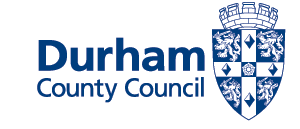Care Home Assistant Practitioner (CHAPs)
The aim of this programme is to equip senior staff within your care practice with clinical and management skills, it adheres to many aspects of a Registered Nursing Course.
The current national shortage of nurses is likely to last for a number of years, therefore the CHAPs role is a fantastic initiative in response to this problem.
The new CHAPs role allows healthcare professionals to work alongside nursing colleagues and take on additional responsibilities, creating a solution to the national shortage of nurses experienced across the care sector.
Who it is for - entry requirements
Delegates must be at a minimum of NVQ/QCF/RQF Level 2 standard.
You need to have a fully qualified nurse within the organisation who is able to sign off your practical competencies for the course. You can find out more about that at Gaining healthcare and nursing competencies.
Please also see the Standards for competence for registered nurses for the NMC guidance.
Information Session
Managers and nurses who are signing off competencies for their staff enrolled on the course are expected to attend the online information session to ensure they understand the structure of the course.
Online session - TBC
Learning method
This programme is delivered face to face over ten full days, and you must attend all ten days, the programme will be assessed by workbooks and then a final theory examination- Pass/Fail.
Please note: Any person who does not complete all requirements of the portfolio prior to submission date will automatically fail the programme. This includes not attending any of the classroom sessions but excludes workplace competencies which remain the responsibility of the employer.
Workbook assessments covering:
- reflective practice
- further independent study
- classroom competency
- workplace competency on all subjects
What you will learn
Ten classroom days covering the following subjects:
- clinical observations and National Early Warning Score (NEWS)
- medication administration and management
- T34 syringe driver
- tissue viability, dressings, wounds and pressure relief
- dysphagia
- enteral administration
- record keeping and communication
- stoma care
- oral suctioning
- catheter care
- basic life support
- blood sugar monitoring
- insulin administration
- venepuncture and cannulation
- portfolio submission and final exam
Day 1
- introduction to CHAPS
- identifying your learning styles
- reflective learning
- basic infection control procedures
- using your senses
- communication and dignity
Day 2
- Clinical Observations and National Early Warning Score (NEWS)
Clinical observation
- vital signs - pulse, blood pressure (manual and with a machine), respiration rate, oxygen saturation NEWS scores
- vital sign - language associated with
- neurological observations
- aseptic technique
- hand washing technique
- urinalysis and how to obtain samples - catheter, continent and incontinent person
- axillary, oral, tympanic temperature
- blood sugar monitoring
- infection control, record keeping, consent and confidentiality will also be discussed
Day 3
- Medication Administration and Management
Medication
- module one - Policies. Legislation. Care Quality Commission (CQC)
- module two - Medication. Routes. Formulation. Types. Absorption.
- module three - Multi-Disciplinary Teams (MDT). Roles and responsibilities. Levels of support. Boundaries and agreed ways of working.
- module four - Order. Receive. Store. Record. Transfer. Dispose.
- module five - 7 rights" of medication administration: right patient, right drug, right dose, right time, right route, right reason and right documentation. Group work. Sources of info. Practical session including Medicines Administration Record (MAR) charts.
- module six - Risk assessments. Person centred care. Review. Covert. Consent. Refuse.
- module seven - Errors and action.
- module eight - Infection control and technique.
Day 4
- T34 syringe driver
- oral suctioning
Syringe driver
- discuss past and present attitudes/experience around palliative care including holistic palliative care
- discuss considerations and difficult conversations
- accountability
- advantages and disadvantages of using syringe driver
- documentation and labelling syringes
- monitoring patient checks
- commonly used drugs, use of drugs beyond licence and syringes
- sites to use and avoid troubleshooting
- oral suctioning
Suction training
- who might require suction
- why suction
- possible risks of suctioning
- when to suction - noticing changes in residents
- where to suction - sites and equipment
- procedure - plus brief infection control talk
- anatomy and physiology
- practical session
Day 5
- tissue viability, dressings, wounds and pressure relief
Tissue viability
- understand the three stages of wound healing
- identify the different cells involved in the stages of wound healing
- categories of wound healing
- principles of wound healing
- types of wound - chronic / acute
- four principles of wound management - TIME concept (Tissue, Infection, Moisture, Edge)
- selecting the appropriate dressing types
Day 6
- dysphagia
- enteral administration
Dysphagia
- causes of dysphagia and common swallowing problems
- the anatomy of swallowing
- how to recognise when someone is having difficulty swallowing
- reducing risk of choking
- International Dysphagia Diet Standardisation Initiative (IDDSI)
- knowing when to escalate and refer to a specialist
- privacy, dignity and respect
- alternatives to oral feeding
Enteral Tube Feeding
- the purpose of enteral tube feeding
- conditions which may require enteral tube feeding
- indications and contra indications of enteral tube feeding
- the procedures for feeding and administering medications via enteral tube feeding
- recognising, dealing with and reporting complications
- the care and maintenance of enteral feeding tubes
- procedures for effective mouth care
- documentation and record keeping
- practical session
- competency framework & training record sign off
Day 7
- record keeping and communication
- stoma care
- catheter care
Effective record keeping
- why do we record information
- what information are you required to record
- data protection and how it affects you
- accurate recording of information
- using appropriate language
- different types of record keeping
- Specific, Measurable, Attainable, Realistic, and Timely (S.M.A.R.T)
Stoma care
- applied anatomy and physiology
- infection control and prevention
- indications for a stoma
- complications of a stoma
- fitting, emptying and removing
- privacy, dignity & respect
- practical session
- keeping accurate records
- learning outcomes
- on completion delegates will be able to demonstrate much improved awareness of stoma, the causes, needs and requirements
- we will ensure delegates understand the importance of maintaining infection control standards throughout their tasks and the privacy, dignity and respect for the service user is kept throughout
Catheter training
- what is a urinary catheter
- advantages/disadvantages of urinary catheters
- reasons for catheterisation
- importance of effective infection control
- how to handle, empty and change catheter bag
- troubleshooting common issues
- awareness of fluid balance
- effective record keeping
- privacy, dignity and respect
Day 8
- blood sugar monitoring
- insulin administration
- basic life support
Diabetes practical skills
- discuss past and present attitudes/experience around palliative care including holistic palliative care
- discuss considerations and difficult conversations
- accountability
- advantages and disadvantages of using syringe driver
- documentation and labelling syringes
- monitoring patient checks
- commonly used drugs, use of drugs beyond licence and syringes
- sites to use and avoid
- insulin administration
- troubleshooting
Basic life support
- recovery position
- shock
- cardiopulmonary resuscitation (CPR) demonstration and practice danger, response, airway, breathing and circulation (D.R.S.A.B.C)
- unconsciousness/head injuries
- choking - responding effectively and practical demonstration
Day 9
- venepuncture and cannulation
Venepuncture
- define venepuncture
- identify roles and responsibilities, relevant to the area of work and venepuncture
- discuss accountability and consent
- label anatomy of vein assess and select suitable sites for venepuncture and sites to be avoided
- describe scenarios when not to take blood
- discuss and practise skills such as timing, using less dominant hand, tourniquet usage and also angles of needle
- list equipment required for venepuncture
- explain order of draw and its importance
- discuss and list labelling a sample accurately
- identify relevant policies and procedures to area of work
- breakdown the potential complications associated with venepuncture and discuss appropriate actions to prevent and/or treat common errors, complications and problems you may encounter
- review the full procedure
- practice by using a simulation arm
- reflective piece based on venepuncture experience - seeing it from patients' point of view
Cannulation training:
- what is a vein and their structure
- identify the veins associated with cannulation
- characteristics of a good and bad vein
- patient status that may affect undertaking the procedure
- adverse reactions to the procedure
- understand of how to deal with sharps injuries
- correct technique for hand hygiene
- principles of aseptic non-touch techniques
- understanding of universal precautions associated with cannulisation
- professional accountability and implications to practice
Day 10
- portfolio submission
- final exam
- opportunity to re-sit failed examination
Course benefits
This course will provide healthcare professionals with the knowledge and skills to take on additional responsibilities working alongside nursing colleagues.
Course dates and times
Date for this cohort is TBC.
Face-to-face sessions
Date | Time | Topic |
|---|---|---|
Day 1 | 9.30am - 4.30pm | Introduction to CHAP's |
Day 2 | 9.30am - 4.30pm | Clinical Observations and National Early Warning Score (NEWS) |
Day 3 | 9.30am - 4.30pm | Medical Administration and Management |
Day 4 | 9.30am - 4.30pm | T34 Syringe Driver, Oral Suctioning |
Day 5 | 9.30am - 4.30pm | Tissue Viability |
Day 6 | 9.30am - 4.30pm | Dysphagia, Enteral Administration |
Day 7 | 9.30am - 4.30pm | Record Keeping and Communication |
Day 8 | 9.30am - 4.30pm | Blood Sugar Monitoring |
Day 9 | 9.30am - 4.30pm | Venepuncture and Cannulation |
Day 10 | 9.30am - 4.30pm | Portfolio Submission |
How to book
Please Contact County Durham Care Academy if you are interested in this course.



 Share this page on Facebook
Share this page on Facebook
 Share this page on Twitter
Share this page on Twitter
 Print this page
Print this page





